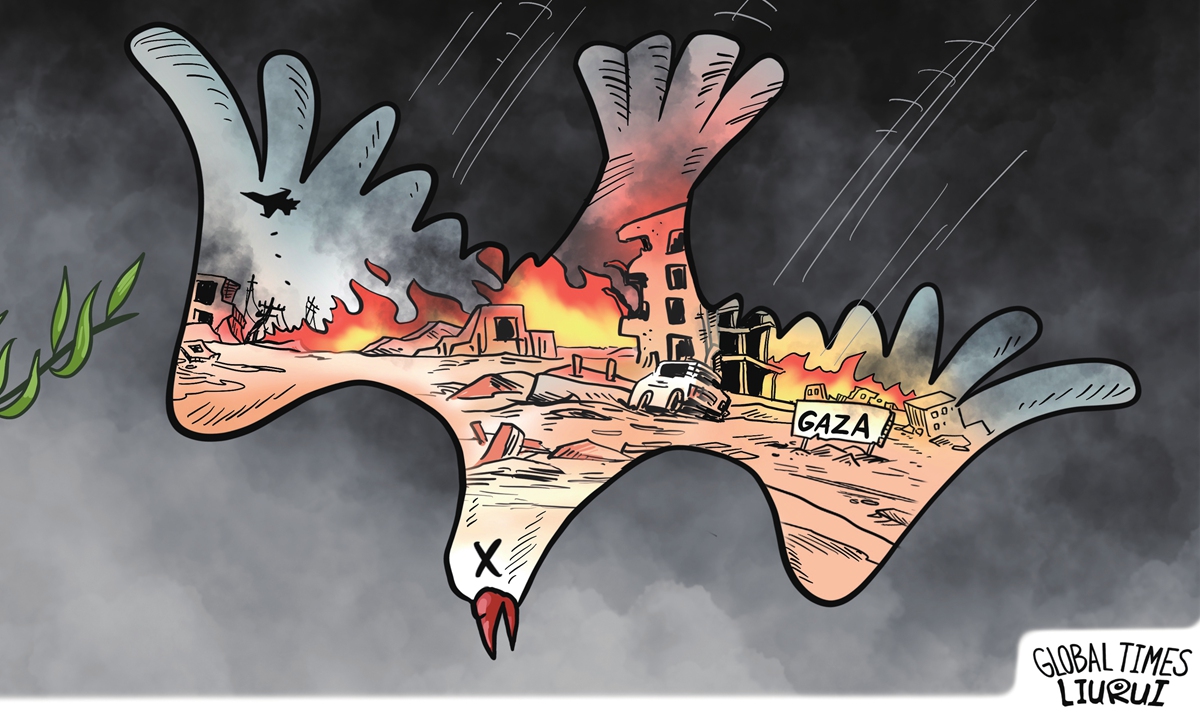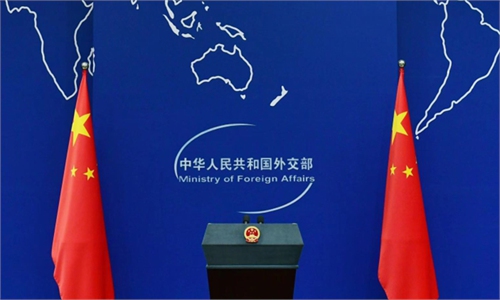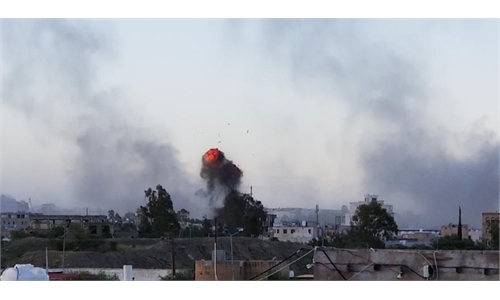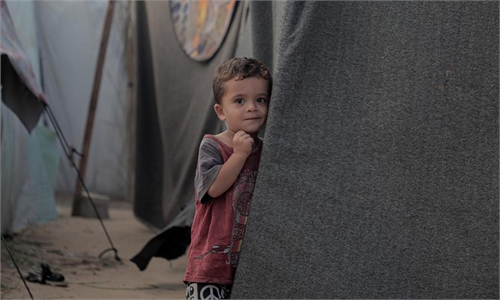
Illustration: Liu Rui/GT
This round of the Gaza conflict has lasted for a year and has become the longest, bloodiest, and most destructive conflict between Palestine and Israel to date. On the anniversary, the world is holding its breath, waiting for "the other shoe to drop" as Israel has vowed to retaliate against Iran. This conflict poses a severe threat to regional peace and international security, casting a shadow over the prospects for peace and stability in the Middle East.The violence has awakened a sense of human conscience and underscored the importance of a two-state solution. Calls for peace are gaining momentum worldwide, with China and other Global South countries serving as key advocates for a ceasefire and for international fairness and justice.
On the anniversary of this round of the Palestine-Israel conflict, a reassessment offers insights into its roots, characteristics, impacts, and future outlook.
The current round of conflict between Palestine and Israel has gradually evolved into a direct confrontation between the Iran-led "axis of resistance" and Israel. This marks the first direct clash between Iran and Israel, two major military powers in the Middle East, plunging both countries into a cycle of strikes and retaliation. This escalation has increased risks in the region, heightening uncertainty for Middle Eastern security and pushing the area to the brink of all-out war.
Following the outbreak of the Palestine-Israel conflict, the Iran-backed "axis of resistance" coordinated efforts to support Hamas in its struggle against Israel. In response, Israel adopted a strategy of targeting members of the "axis of resistance," resulting in multiple fronts emerging around the core issue of the Palestine-Israel conflict. This has rendered international mediation ineffective. Moreover, the US has taken an ambiguous stance on the conflicts in the Middle East, wavering in its position. While appearing to engage in mediation, it, in fact, unwaveringly supports Israel, undermining the efforts of international diplomacy.
The Palestine-Israel conflict has opened a "Pandora's box," and its detrimental consequences are now unfolding in every aspect. The latest round of the Palestine-Israel conflict has spilled over to regional and global levels, severely disrupting the security landscape of the Middle East.
This has resulted in a lose-lose situation for both Israel and Palestine, with heightened confrontation and deepened animosity on both sides. The Palestinians have suffered heavy losses, while Israel has yet to achieve its military objectives and its national image has been shattered. The foundation of the two-state solution has been further undermined, making hopes for peace in the Middle East even more elusive. The ripple effects of the conflict have spread globally, exacerbating the divide between the Global South and the West, causing rifts within the Western bloc, and leading to social fragmentation in Western countries.
In this round of conflicts, the forms of warfare are constantly evolving. Merchant ships in the Red Sea became targets of attacks, threatening the security of international transportation. Civilian communication tools have been weaponized, and warfare has infiltrated the international supply chain, raising concerns about the security of global supply chain and posing a real threat to economic globalization. Assassinations, "targeted killings," and attacks on diplomatic institutions occur frequently, with national sovereignty and international law being disregarded. The ethical boundaries of war are continually being breached, sowing the seeds of hatred and making the situation in the Middle East even more perilous.
However, there is still hope for peace amid the flames of war. After the outbreak of this round of the conflict, the Palestinian issue has returned to the international spotlight, and calls for resolving the Palestine-Israel conflict based on a two-state solution and achieving peace in the Middle East are growing stronger. The dawn of peace should not be overshadowed by the flames of war, as positive shifts in international public opinion will have a profound impact on resolving the Palestinian issue.
China's efforts to facilitate historic reconciliation among various Palestinian factions, the increasing recognition of the State of Palestine by more Western countries, and the rising status of Palestine in the UN are all positive signs that strengthen the foundation for resolving the Palestinian issue through a two-state solution.
The Palestine-Israel conflict remains the root cause of the current turmoil in the Middle East, and achieving a ceasefire is the priority. Resolving this longstanding conflict in the Middle East will not happen overnight, but peace in the region should remain a goal that, however distant, must be pursued.
The author is a professor with the Middle East Studies Institute of Shanghai International Studies University. opinion@globaltimes.com.cn



